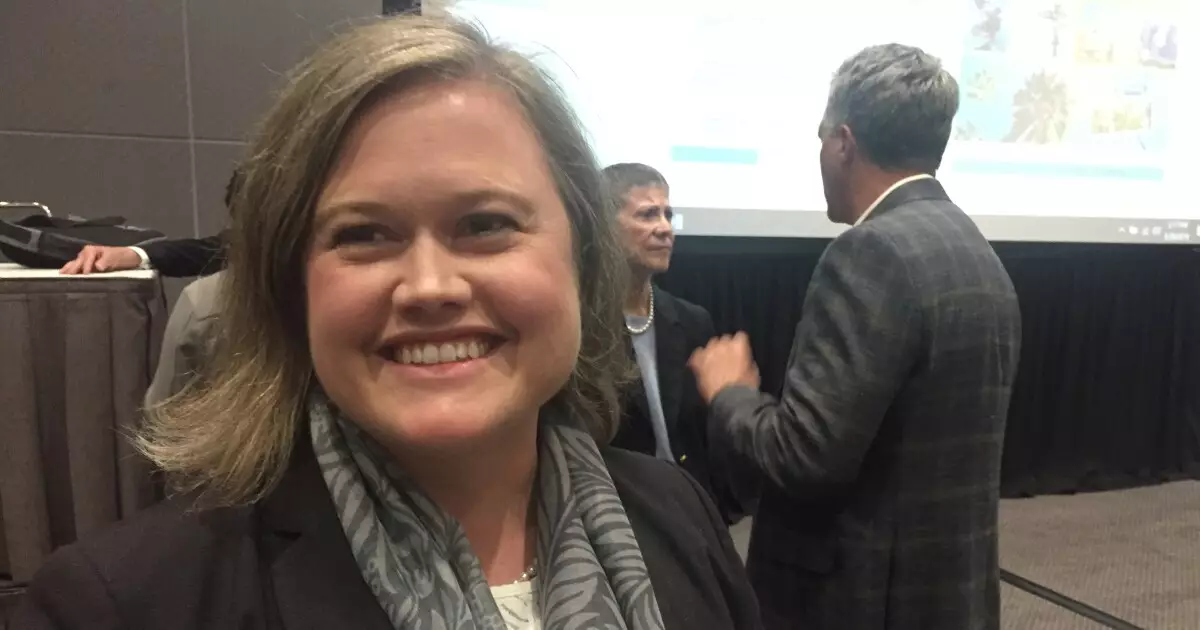As the clock ticks down to a potential government shutdown, concerns are mounting over the implications for states and municipalities reliant on federal funding. The collapse of the recent continuing resolution deal, intended to keep the government operational until mid-March, underscores the challenges that lie ahead. With key political figures, including President-elect Trump and billionaire Elon Musk, vocalizing their opposition to the agreement, the future remains uncertain.
Wednesday’s breakdown of the continuing resolution deal highlights a widening partisan divide that raises eyebrows across the political spectrum. The proposal, which was meant to provide essential funding for various programs, fell apart after pressure from influential figures within the Republican Party. Emily Brock, director of the Federal Liaison Center at the Government Finance Officers Association, expressed a prevalent hope for Speaker Johnson to navigate these political waters and broker a compromise amidst a range of diverging viewpoints.
This situation points to a troubling trend where inter-party negotiations become increasingly complex. With looming deadlines and budgetary pressures, the inability to reconcile differences only amplifies the stakes for local governments that depend heavily on federal resources for critical initiatives, such as infrastructure and Medicaid support. Infrastructure funding is particularly problematic—it is often disbursed as reimbursement after expenses are incurred rather than as upfront capital, complicating financial planning for state and local bodies.
Federal funding serves as a lifeline for state and municipal projects, allocating essential resources to improve public infrastructure, support healthcare systems, and even manage disaster relief initiatives. The proposed $110.4 billion package at risk of being shelved included provisions for assisting agencies like the Federal Emergency Management Agency (FEMA) and the Department of Agriculture. It also sought to authorize raises for lawmakers at a time when many constituents are struggling with rising costs of living.
Critics have been quick to label the proposal as a “Democrat giveaway,” further fueling the contentious political atmosphere. Trump and Vice President-elect Vance articulated their vision of a fiscally conservative approach, emphasizing a need for a temporary funding agreement that eschews what they term as unnecessary expenditures. Their sketch of a new fiscal agenda leaves uncertainty in its wake, particularly regarding how immediate federal funding can be trusted to flow.
Another vital factor in this unfolding drama is the ongoing debate regarding the federal debt ceiling. Policy experts have maintained that failure to address the debt ceiling responsibly can result in adverse implications for financial markets. With the incoming administration’s focus sharply fixed on fiscal policy reforms, how this unfolds in relation to the bond market is crucial. Brock aptly points out that any economic turbulence will have repercussions in the municipal bond sector.
Adding further complexity to the situation, Musk’s strong stances on social media cast shadows over federal initiatives meant to support infrastructure repair, such as the Francis Scott Key Bridge project. His push against perceived federal overspending connects to larger concerns about accountability in government spending, making discussions about state versus federal obligations increasingly contentious.
As government officials grapple with these issues, the prospect of a shutdown may serve as a significant lesson for the new Congress. In a climate where financial markets may react unpredictably to congressional gridlock, Brock’s warning serves as a call for awareness. Understanding the Republican Party’s broader priorities is essential, especially regarding areas where disconnect exists.
The potential fallout from a shutdown may not only affect immediate funding for essential services but may also teach lawmakers about the consequences of inaction. The municipal market, poised delicately on the balance of political discussions, must adapt to rapidly shifting politics.
The fallout from this governmental impasse signifies more than just a fiscal debate; it reflects a deeper fracture within American political dialogue. As the impending deadline approaches, one can only hope that resolution lies ahead before uncertainty turns into immediate chaos, affecting millions dependent on federal assistance and effective governance.

